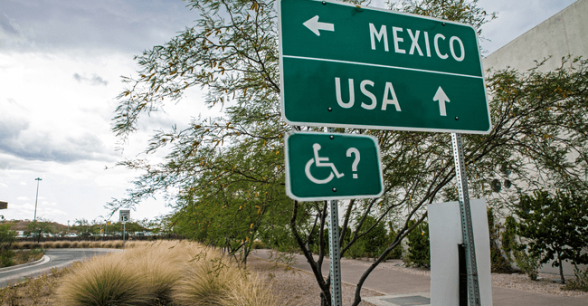Autism and Homelessness: The Real Crisis
Contrary to much media spin, autism is neither a tragedy nor a looming public health crisis. Autistics have always been here and research over the last decade has shown that while diagnosis has increased over time, the actual percentage prevalence of autism has not risen.1 What is a tragedy is how underserved we are. I am a 49-year-old Autistic and I have spent much of my adult life homeless and hungry because, like so many of us, I was sliding through the cracks; one agency would turn me away for being “too high functioning” and another would turn me away for being “too low functioning.”
I had a very hard time in school and left unprepared for independent living, higher education, or a career. I could make it through an interview for a minimum wage job but couldn’t manage to keep those jobs for more than a couple of weeks before I was “let go” with no explanation. Since my lack of formal education only qualified me for the lowest income employment to start with, I couldn’t keep a roof over my head. Being forced to change jobs two to four times per month left too many gaps in an hourly wage that was already painfully low.
My disability-related poverty is more than just a personal anecdote. The U.S. Census Bureau has statistics about poverty and disability that are jaw-dropping: at the same time that the overall poverty rate in the U.S. dropped to 14.5%, the poverty rate for disabled people rose to 28.8%. My struggle to provide for myself is echoed by a U.S. study that found that only 17% of Autistic adults between the age of 21 and 25 have lived independently, compared to 34% of non-autistic 21- to 25-year-olds with intellectual disability.2 I may not have been living with parents or in a group home or institution, but sleeping in the park and eating from dumpsters is not exactly what I would call “independent living.”
According to the National Autistic Society, one-third of Autistic adults in the UK have neither employment nor access to benefits.3 I am not aware of a similar study in the United States yet, but I have met so many Autistics and other disabled people living on the streets and in other highly marginalized settings during my own years of homelessness that I would not be at all surprised to find similar statistics. Twelve percent of Welsh Autistic adults reported experiencing homelessness and 65% of homeless people sleeping in the streets in Devon, England, had been diagnosed with autism. Surveys have indicated an autism rate between 1% and 2% across all countries. Rates of autism among the homeless population are 3000% to 6000% higher than in the general population – a percentage so overwhelming I don’t have words adequate to express my outrage.
While I am still technically homeless, I have moved into a comfortable and reliable vehicle and am happy with my current living situation. I am sustained by Supplemental Security Income (SSI) disability benefits but my income from working as a freelance writer is slowly growing. Mine is still an economically fragile life, but I don’t pay rent and the increased mobility lets me afford limited travel to promote my books. I dream of being economically self-supporting and I am working at and making progress toward that goal. Other homeless Autistics have not been so fortunate in finding their niche, however. Research suggests as much as 13% of forensic populations may be Autistic.4 A London study of prisoners with “neurodevelopmental disorders and difficulties” found that neurodivergent prisoners were three times as likely to have been homeless before coming to prison and 80% of neurodivergent prisoners had previous convictions.5
It is time to turn these figures around. There is no excuse for leaving so many vulnerable members of society to flounder with no support. Autistic homelessness needs to be addressed on every level, from inadequate employment supports to insufficient services and benefits to the financial and social barriers to healthcare access that result in underdiagnosis and lack of appropriate resources for Autistic adults. Everyone deserves a safe place to live and Autistic adults need personal and social supports to protect us from the poverty and homelessness we are disproportionately at risk of suffering.
Sources:
(1) Brugha TS, Spiers N, Bankart J, et al. Epidemiology of autism in adults across age groups and ability levels. Br J Psychiatry. 2016.
Lundström S, Reichenberg A, Anckarsäter H, Lichtenstein P, Gillberg C. Autism phenotype versus registered diagnosis in Swedish children: prevalence trends over 10 years in general population samples. BMJ. 2015;350:h1961.
Wing L, Potter D. The epidemiology of autistic spectrum disorders: is the prevalence rising?. Ment Retard Dev Disabil Res Rev. 2002;8(3):151-61.
(2) Anderson KA, Shattuck PT, Cooper BP, Roux AM, Wagner M. Prevalence and correlates of postsecondary residential status among young adults with an autism spectrum disorder. Autism. 2014;18(5):562-70.
(3) Redman, S et al. Don’t Write Me Off: Make the system fair for people with autism. The National Autistic Society. 2009.
(4) Anckarsäter H, Nilsson T, Saury JM, Råstam M, Gillberg C. Autism spectrum disorders in institutionalized subjects. Nord J Psychiatry. 2008;62(2):160-7.
(5) Mccarthy J, Chaplin E, Underwood L, et al. Characteristics of prisoners with neurodevelopmental disorders and difficulties. J Intellect Disabil Res. 2016;60(3):201-6.
About Rooted In Rights
Rooted in Rights exists to amplify the perspectives of the disability community. Blog posts and storyteller videos that we publish and content we re-share on social media do not necessarily reflect the opinions or values of Rooted in Rights nor indicate an endorsement of a program or service by Rooted in Rights. We respect and aim to reflect the diversity of opinions and experiences of the disability community. Rooted in Rights seeks to highlight discussions, not direct them. Learn more about Rooted In Rights



